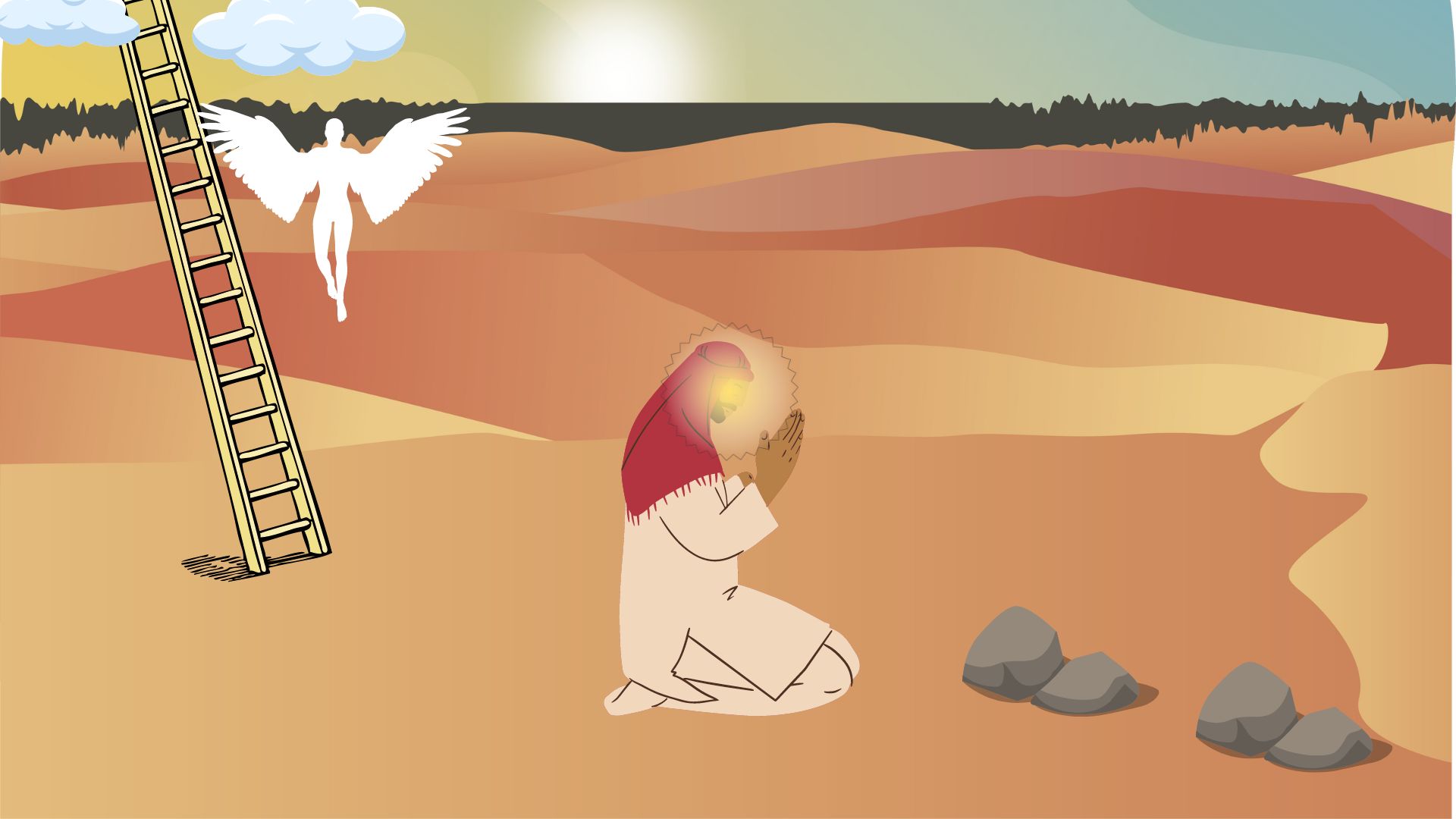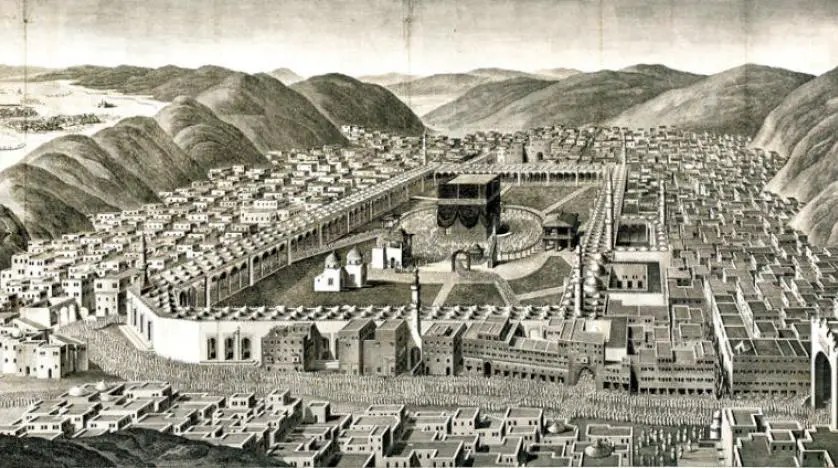Story of Prophet Ayyub offers many lessons since he is the perfect illustration of a persecuted believer who stayed steadfast to His Lord and patient in his suffering.
Everybody has difficulties and hardships at some point in their lives. The believer’s ability to cope is aided by patience. A patient believer is not crushed when tragedy strikes him. Instead, the believer perseveres and has faith in Allah’s mercy and the blessings that will be bestowed upon him on the Day of Judgment.
One virtue you may concentrate on developing is patience. The Holy Qur’an mentions Prophet Ayyub (peace be upon him) four times.
Prophet Ibrahim‘s descendent was the prophet Ayyub (Job). Prophet Ayyub’s wife was a direct descendant of Prophet Yusuf, while his mother was a daughter of Prophet Lut. Ayyub, his devoted wife Rahma, and their 14 children resided in Rome.
Ayyub was a Prophet who had received a great deal of blessing from Allah; he was a community leader who was well-liked and respected by his people, and he also possessed big plots of land, plenty of cattle, and a righteous and lovely family. Despite his position and wealth, Ayyub never displayed haughtiness; instead, he was willing to assist those in need and never stopped thanking and praising Allah for all of his blessings.
The angels started talking about the best aspects of human beings one day as they were seated high in the heavens. Among them, an angel spoke,
“The best creature on earth today is Ayyub, a man of noble character who displays great patience and always remembers his Generous Lord. He is an excellent model for the worshippers of Allah. In return, his Lord has blessed him with a long life and plenty of servants; the needy and the poor share in his good fortune— he feeds and clothes the poor and buys slaves to set them free. He makes those who receive his charity feel as if they are favouring him— so kind and gentle is he.”
Satan, who was nearby, overheard the conversation and grew furious. He instantly started making plans to seduce Ayyub into abandoning his worship of Allah. The Prophet was a genuine servant of Allah and was not easily led astray; this infuriated Satan even more. He whispered wicked thoughts to Ayyub about the various joys of life that a man like Ayyub could readily enjoy.
Satan went to Allah and told Him that Ayyub was not a true servant of His and that he was just glorifying Him out of fear of losing all of his wealth. If you take away his wealth, Satan said, “You’ll see that his tongue will no longer mention Your name, and his praying will stop.” Because Allah, the All-Knowing, knew that Ayyub was one of His most devoted followers and did not worship his Lord merely for temporal riches, He did not believe Satan. However, He consented to Ayyub’s test in order to demonstrate to Satan His faithful servant’s unwavering sincerity. Thrilled, Satan began his mission to ruin Prophet Ayyub’s wealth.
Prophet Ayyub’s riches gradually decreased over time, until he eventually ran out of land, animals, servants, and money.
In the guise of an elderly wise man, Satan approached the Prophet after being incredibly satisfied with Ayyub’s struggle and said, “All your money is lost; some people say that it is because you donated too much charity; others say that you are wasting your time with your constant prayers to Allah. Some claim that Allah has sent something your way to appease your adversaries. Allah would have preserved your money if He had the power to stop harm.”
“Allah gives to whoever He wills and takes from whom He wills,” Ayyub responded. ” And since all of my wealth is Allah’s property, He is fully entitled to take it away from me.” Then Ayyub turned around and kept praising and thanking Allah.
A little agitated, Satan went back to Allah and said, “I have taken away everything of Ayyub’s belongings, but he still thanks You. He is merely masking his dissatisfaction, though. Through his children, a parent is really put to the test. You’ll observe Ayyub’s rejection of you.” Allah agreed to put Ayyub through more testing even though He still knew that his love and confidence in his Lord would not falter.
Soon after, the house where Ayyub’s children were housed collapsed, killing all fourteen of his young, lovely children. Satan returned to Ayyub disguised as a sympathetic bystander and said, “The circumstances of your children’s deaths were unfortunate. Without a doubt, your Lord is not appropriately honoring all of your prayers.
“Allah provides me what is excellent for me, and Allah takes away what Allah deems as being unfavorable to Him and to me”, Ayyub replied. Allah removed all of these children from me because He saw that they might be a serious test and trial for me. I will maintain my conviction and my gratitude for my Creator whether something is helpful or harmful to me.
Satan hurried back to Allah and said “O my Lord, Ayyub’s riches are gone, his children are dead, and he is still healthy in body. As long as he maintains excellent health, he will continue to serve You in the hope of retrieving his fortune and having more children. Give me control over his body so I can make it weak. He will undoubtedly cease to worship You and stop obeying.”
The request was accepted, but Allah gave him the following instructions: “I give you dominion over his body, but not over his spirit, intellect, or heart, for within is knowledge of Me and My religion.”
Ayyub’s health quickly declined following it. He was so sick that his skin would often peel off, exposing his muscles and bone underneath. The only two functioning organs in his body, however, were his heart and tongue, which he continued to utilize to exalt Allah, as Allah had directed. Ayyub endured excruciating anguish, but he never permitted himself to moan or waver in his faith in Allah.
The citizens of the city started arguing that if Ayyub were a good person, Allah wouldn’t have treated him this way. Ayyub’s loved ones, friends, and everyone else who respected and cared about him eventually abandoned him, with the exception of Rahma, his devoted wife.
LOVE OF ALLAH BY PROPHET AYYUB
Ayyub suffered from his condition for years, and the only person who could care for him was Rahma. His wife sought a job to support him because they had no money and no income. However, the residents of the city did not permit Rahma to work for an extended period of time out of concern that she would infect them with the same ailment as her husband. While this was going on, Ayyub kept asking Allah to give him the strength and patience to put up with this hardship.
In the shape of a man, Satan once questioned Rahma, “Where is your husband?” Rahma responded, pointing to Ayyub’s nearly lifeless form, “There he is, suspended between life and death.”
Satan continued by reminding her of the happy times when she was healthy, had children, and was wealthy. Rahma, who had endured years of suffering, ran up to Ayyub and cried out, “O Ayyub, you are the prophet and the messenger of Allah. You are the one who is closest to Allah. Ask Allah to save you from the harm you are experiencing.”
“Satan must have spoken to you in a whisper and caused you to feel unsatisfied”, Ayyub sighed in response. ” Tell me how long I was prosperous and in good health?” ” Eighty years or so”, his wife replied. “How long am I going to be suffering like this?” he responded. “Seven years,” she murmured. “In that scenario, I am humiliated to ask my Lord to ease my suffering, as I have not experienced difficulty for a longer period of time than the years of good health and affluence,” Ayyub continued. ” Your belief appears to have waned, and you appear to be disappointed in Allah’s course of events. I make a solemn vow to punish you with a hundred strokes if I ever regain health. I have vowed never again to take food or drink from your hand. Let my Lord deal with me, however, He will; just leave me alone.
Ayyub resorted to Allah in desperation, pleading for His mercy. He pleaded, “Truly, Satan has touched me with distress (by causing me to lose my health) and torment (by causing me to lose my wealth). Allah answered Ayyub’s cries for help in an instant. ” Strike the ground with your foot; this is a spring of water to cool off in and to sip for refreshment”, said Allah.
Ayyub quickly carried out Allah’s instructions. Cold water poured out at his feet as soon as he struck the ground. Ayyub did as he was told and drank the water and cleansed his body. Ayyub’s blisters vanished quickly, his skin entirely rejuvenated, and his internal organs started to work. Ayyub was indeed entirely cured by the mercy of Allah.
Rahma, who could no longer bear to be apart from her husband, went back home. When she did, she was greeted by Ayyub, now an unfamiliar-looking man.
“Where is Ayyub? who are you?” she inquired. ” You resemble him quite a bit.” ” It’s me”, he said with a smile. She instantly gave him an enthusiastic hug and thanked Allah for His compassion.
As soon as he regained his health, Ayyub recalled his vow to punish his wife with a hundred strokes. Because he did not want to harm his beloved wife or violate his vow to Allah, Allah, the Most Wise, gave Ayyub the following instructions: “Take in your hand a bundle of thin grass and strike with it your wife, but do not break your vow.”
Then Allah brought back Ayyub’s wealth. All around Ayyub, Allah sent down a rain of locusts made of gold. Allah questioned Ayyub as he started collecting the gold locusts, “O Ayyub! Have I not made you wealthy enough for you to not need what you see?”. “Yes, My Lord,” Ayyub responded. ” But I am unable to refuse Your blessings.”
Additionally, Ayyub and Rahma received their families back. Twenty-eight lovely, healthy children—fourteen girls and fourteen boys—were born to the couple.
Story of Prophet Ayyub: A Tale of Trust and Patience
The Story of Prophet Ayyub is one of patience and misfortune. Being a devoted servant of Allah is simple when things are going well, but he is a remarkable person because his faith never wavered amid trying circumstances. One thing we should learn from the Story of Prophet Ayyub is to keep patience in trying times and trust Allah.
What arose such patience? Why didn’t he complain?
The story of Prophet Ayyub demonstrates how Prophets and sincere believers are aware that Allah puts His slaves through hardships to test their patience, enhance their status in Paradise, and atone for their misdeeds. In actuality, a Muslim’s misfortunes shouldn’t be seen as a catastrophe that will wreck his or her life but rather as evidence of Allah’s love for that person. It serves as the necessary wake-up call for certain Muslims to turn to Allah and repent, which is a blessing in disguise.
“O Messenger of Allah, which of the people is most severely tested?” asked the companion Sa’d ibn Abi Waqqas. ” The Prophets, followed by the second best and the next best”, he said. “A man will be put to the test based on his level of religiosity. He will be put through a more rigorous test if his religious devotion is strong, and he will be put through a test in line with his religious commitment if it is weak. Until a person travels the planet without any sin on him, tragedy will continue to overtake him.”
The story of Prophet Ayyub teaches us the importance of having genuine tolerance and acceptance while yet turning to Allah for protection and assistance.
We will face difficulties, but we must view them as a test, a chance to show our patience and unwavering faith in Allah.
How do we succeed in these exams? The only way the catastrophe will atone for our sins and bring us greater rewards is if we are patient. We fail the test if we react to it with resentment, fury, incessant whining to everyone we meet, and immoral behavior.
When faced with difficulties, sadness, injury, or disease, what do we say? “We belong to Allah, and our return is to Him,” we need to say.
The Prophet (peace be upon him) once said: “Enormous reward comes with great trials. When Allah loves a people, He puts them to the test; whoever passes the test receives Allah’s pleasure; meanwhile, whoever rejects it receives Allah’s anger.
These are trying times for the entire Muslim community; may Allah grant us patience.
Read more stories of our beloved prophets. Check out our Instagram Feed.









